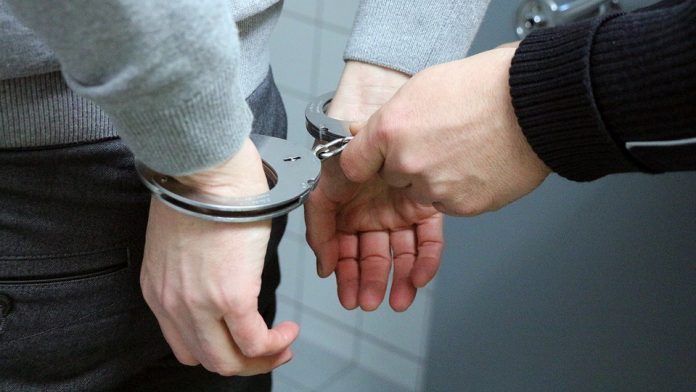This article is written by Sanjeev Rana, pursuing a Certificate Course in Labour, Employment and Industrial Laws for HR Managers from LawSikho.com. Here he discusses “How to Draft and Issue a Charge Sheet against Government Official”.

Introduction
Government Officials are the people on the ground who execute/implement various government policies and schemes. However, there may be cases wherein some official may be found guilty of misconduct. It is imperative that a mechanism exists to investigate cases of misconduct against government officials.
It is also fair to provide systems wherein free and just investigation is done where an alleged wrong-doing has been reported against any official in line with the principle of natural justice.
Article 311 of Constitution of India provides the necessary safeguards, primarily 2 safeguards to the government officials in relation to their tenure of office,
1) An official cannot be dismissed by an authority subordinate to the appointing authority of the official.
2) An official cannot be dismissed or reduced in designation/rank, except after an inquiry which provides full opportunity for the government official to defend himself.
Disciplinary Proceedings are initiated against a government official who is alleged to have committed misconduct.
The procedure to be followed in disciplinary proceedings is provided in Service Rules and Standing Orders of the Government.
The Procedure follows as
(1) Complaint lodged against the Government Officials
The process starts when a complaint is received against a government servant. The complaint may be made by a citizen or within the department of the employee.
(2) Carrying out Preliminary Inquiry
The main objective of this inquiry is to determine whether there is a Prima Facie case against the government official. This is essentially a fact-finding exercise to rule out a frivolous or false complaint. The preliminary inquiry is conducted by the officer superior to the government official on the directions of the disciplinary authority(DA). After reviewing the preliminary inquiry Report the DA decides to hold a departmental inquiry or complaint to be dropped. It may not be necessary to hold a preliminary inquiry before initiating Proceedings; however, it is advisable if,
- It will help in establishing actual wrongdoer
- Principle of Natural Justice is followed
- Helps clear vagueness of the complaint etc.
The inquiry should be provided in writing and be factual, should not be judgemental, it basically must point if there appears enough evidence to initiate a full-fledged proceeding or not.
(3) Show Cause Notice to Official
The show-cause notice will clearly convey the official about the misconduct reported against him/her. It is only issued if preliminary inquiry points out that prima facie there is a case of wrongdoing by the official. The Show Cause will convey what is the misconduct reported against the government official and the expectation is to solicit his/her response to the show-cause.
(4) Response against Show Cause Notice
Once the Preliminary Inquiry has held the delinquent official prima facie responsible for misconduct, he/she is required to submit his reply to the show-cause notice within the stipulated period. Failure to respond within time can lead to proceedings being initiated Ex-Parte.
(5) Serving of Charge Sheet
If the reply of the Official is considered unsatisfactory by DA, then the stage is set for a formal investigation. The first step in the regard is the serving of “Charge Sheet” to the official. The charges should be communicated in writing to the delinquent in the form of a charge sheet clearly stating the misconduct reported against him/her. It is a primarily a document containing the allegations of misconduct levelled against the employee concerned.
In a disciplinary proceeding, the charge sheet is very important. It should be framed with great care and skill. A faulty charge-sheet may annul the whole proceedings and make this exercise futile.
Important Guidelines for Filing Charge-Sheet are provided below
- It must be served in a timely manner to maintain relevance.
- The charge must be specific, and precise and show clearly the responsibility of the Official for the misconduct
- The language of the charge -sheet should be simple and unbiassed
- The charge should give full details of the incident, a copy of the Preliminary Report may also be provided
- The charge-sheet should be served within a reasonable time
- It should be handed over to the employee concerned and its receipt be obtained from him. In case he refuses to give a receipt, such an endorsement can be made on it, in the presence of at least two witnesses.
(6) Response to the Charge-sheet
The official must submit his written reply to the charge-sheet within the time specified, the time may be extended by the competent authority. Failure to submit his explanation would enable the authority to proceed ex-parte. The authority will not wait for the reply indeterminately.
(7) Scrutiny of Response of Official
The main decisions which will come out of the scrutiny of delinquent’s response will be:
- The Official accepts the Charge and asks for mercy, no enquiry needs to be conducted and the proceedings move to impose a penalty
- DA is satisfied with the response and decides to drop the charges
- DA feels that minor penalty will suffice, the proceedings move to impose a penalty
- DA feels that the misconduct warrants Major Penalty then a regular Departmental Enquiry will be held.
(8) Appointment of Inquiry Officer (IO) & Presenting Officer (PO)
While appointing IO & PO the following needs to be kept in mind,
- Should be Senior in Rank of the Delinquent Officer
- Choice of IO should be as per the nature of Offence
- Any Official with purported “Bias” to be excluded.
- A retired officer, board, Court etc. may be appointed Inquiry Authority
(9) Legal Assistance for Official
Following principles of natural justice, the Delinquent Official will be provided with all support to prove his innocence, which may include a Colleague or even a Retired Official.
(10) Attendance and Examination of witnesses
The Department will lead the proceedings with calling of witnesses, the Official will have Rights to cross-examine the witnesses. IO is vested with the power to summon the witnesses.
(11) Findings and Report of the IO
The findings are to be produced so that the DA can with full confidence take a decision against the Govt. Official. The report should contain-
- Background of the case.
- Charges against the Official
- Response of Official
- Appointment of IO
- The evidence and witness testimonies
- The response from Official
- Reason for acceptance or rejection of evidence led by either party
- Conclusion arrived for each charge
(12) Findings and Issuance of Show Cause Notice to Official
- If the DA basis the Report finds the Official innocent the charges are dropped, and enquiry is terminated
- If the DA is of the opinion the Official is guilty, he/she issues Charge-Sheet to the Official specifying the misconduct and proposed penalty.
(13) Response to the Show Cause Notice and consideration of past records
- The delinquent is required to submit his reply to the Show Cause Notice within the stipulated period.
- If delinquent makes a request for a personal hearing to put forward his case, it must be given to him to ensure this does have an adverse impact on a later stage.
- The DA may consider the past service record of the Official while imposing a penalty.
(14) Penalty Proposed
The Penalty to given will depend upon the gravity of the misconduct.
The Rules enumerate the following two kinds of penalties: –
(a) Minor Penalties such as,
(i) Censure
(ii) Withholding of promotion
(iii) Recovery from pay
(iv) Withholding of increment of pay,
(b) Major Penalties such as
(i) Reduction to a lower designation
(ii) Delayed promotion
(iii) Compulsory retirement;
(iv) Removal from service and
(v) Dismissal from service.
(15) Final Order
After above, finally, order for imposing the penalty is passed by the disciplinary authority.
The Final Order should closely align with a judicial order and always contain,
- Should be a self-contained conforming to the legal requirements.
- Should be like “speaking order”, indicating clearly the points for consideration, the decisions thereon and the reasons on which the decisions are based.
- The reasons should reveal links between the facts considered and the conclusions reached.
- It also enables the delinquent to make his case for going in appeal or revision before a higher administrative authority or approaching the Higher Court, against the decision.
(16) Remedies against Penalties
If the government official is not satisfied with the decision of the DA, he can do the following,
(A) Constitutional Remedies
As a citizen of India is entitled to protection under the Constitution of India. Therefore, he may approach the Supreme Court under Article 32 and the High Courts under Article 226 of the Constitution of India.
(B) Administrative Remedies
(i) Appeal
The Govt. Official may prefer an appeal to the appellate authority. An appeal shall generally be preferred within a period of 45 days from the date of delivery of the order.
(ii) Revision
In case he is not satisfied even with an order of the appellate, he can file revision with the revisional authority, as prescribed by service rules.
Conclusion
The procedure for taking disciplinary action against a Government official appears to be a lengthy and detailed one. The fundamental idea is to ensure necessary rules are available to investigate cases of misconduct against officials who may not discharge their duties properly and also if charged with misconduct he is allowed redressal as per Principle of Natural Justice before being penalised.
References
- https://dopt.gov.in/ccs-cca-rules-1965
- http://kvic.org.in/update/vigilance/Vig_standard_Formats.pdf
- https://blog.ipleaders.in/disciplinary-inquiry/
- http://www.legalservicesindia.com/article/1927/Disciplinary-Proceedings-against-a-Govt.-Servant.html
- http://kvic.org.in/update/vigilance/Vig_standard_Formats.pdf
Students of Lawsikho courses regularly produce writing assignments and work on practical exercises as a part of their coursework and develop themselves in real-life practical skill.
 Serato DJ Crack 2025Serato DJ PRO Crack
Serato DJ Crack 2025Serato DJ PRO Crack










 Allow notifications
Allow notifications


